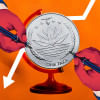23,000 infants can be saved each year in Bangladesh
As many as 23,000 children might be saved a year in Bangladesh if women do not give birth before the age of 20, said a Unicef official, expressing concern over a high level of child marriage in the country.
More than half of the girls here get married before they reach 18, according to government data.
“Early pregnancy causes higher incidence of complications and higher child deaths,” said Lianne Kuppens, chief of Unicef's health section in Bangladesh, at the inaugural of a three-day national conference yesterday on sexual and reproductive health and rights.
The conference features discussions on ways to eliminate maternal and child deaths and diseases, improve sexual and reproductive health services and to address sexually transmitted infections, cervical cancer and gender-based violence.
Kuppens said under-five mortality is 66 per thousand children born to women below 20 years whereas the number is reduced to 43 when women give birth between 20 and 29 years. Neonatal and infant mortality rates are also higher in the cases of women giving births before 20 years.
“Preventing child marriages can also significantly reduce maternal mortality,” said Wahid Hossain, director general of the Directorate General of Family Planning.
Maternal mortality in Bangladesh now stands at 170 perlakh births, according to official data.
The single factor of prevention of child marriages can ensure a longer period of education, reduction in the fertility rate and an increase in women's participation in jobs, Wahid said.
He stressed the importance of educating adolescents in remote areas on sexual and reproductive health rights, but at the same time cited shortage of manpower for the job.
Two thirds of the population in Bangladesh now belongs to the working age and a large number of them are youths, said Argentina Metavel, country representative of United Nations Population Fund (UNFPA).
The government needs to make more investments in health and education of the young population to reap the benefits of the demographic scenario, she said.
Metavel also suggested looking seriously at certain pockets like Sylhet and Chittagong where maternal and child mortality rates are much higher than other divisions, and emphasised the need for training and recruiting skilled midwives for safe deliveries.
According to the experts, teenage married girls tend to discontinue with contraceptive methods, a fact that leads to higher birth rates and health complications.
Addressing as chief guest, Health Secretary Syed Monjurul Islam said the government was focusing on creating awareness among adolescents about their health aspects as they pass through critical psychological and physical changes.
AS Mahmud, additional secretary of the education ministry; Abul Hossain, joint secretary of the ministry of women and children affairs; Stefano Savi, deputy representative of Unicef, and Martine van Hoogstraten, deputy head of mission of the Netherlands Embassy, also spoke at the programme.
The embassies of the Netherlands and Sweden, UN Population Fund and UN Children's Fund organised the conference at Bangla Academy in the capital in partnership with the Ministry of Health and Family Welfare. The event is supported by the Reproductive Health Services Training and Education Programme.

 For all latest news, follow The Daily Star's Google News channel.
For all latest news, follow The Daily Star's Google News channel. 








Comments